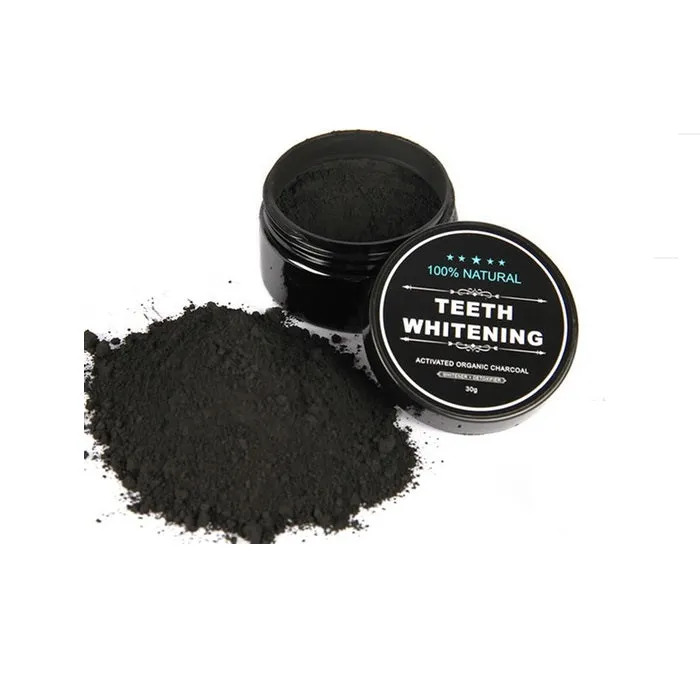Charcoal Teeth Whitening Top 5 Benefits
In recent years, charcoal teeth whitening has surged in popularity as a natural and accessible method for achieving a brighter smile. Touted for its potential to remove stains and improve oral health, this technique involves using activated charcoal to gently polish the teeth. While the concept may seem unconventional, many people are turning to charcoal as an alternative to traditional whitening treatments. This article delves into the top five benefits of charcoal teeth whitening, providing a comprehensive overview of its advantages and potential drawbacks. Understanding these aspects can help you make an informed decision about whether this method is suitable for your dental care routine, and how it can contribute to your overall well-being and confidence.
Benefit 1: Natural Stain Removal
One of the primary benefits of charcoal teeth whitening is its ability to effectively remove stains from the surface of the teeth. Activated charcoal, derived from sources like coconut shells or wood, possesses a porous structure that allows it to bind with stain-causing compounds. This natural abrasive quality helps to gently scrub away stains caused by coffee, tea, wine, and other foods and beverages, restoring the natural whiteness of your teeth. It’s a less invasive alternative to chemical whitening treatments, offering a more natural approach to achieving a brighter smile and reducing the need for harsh chemical treatments, which is beneficial for those seeking gentler options.
How Activated Charcoal Works
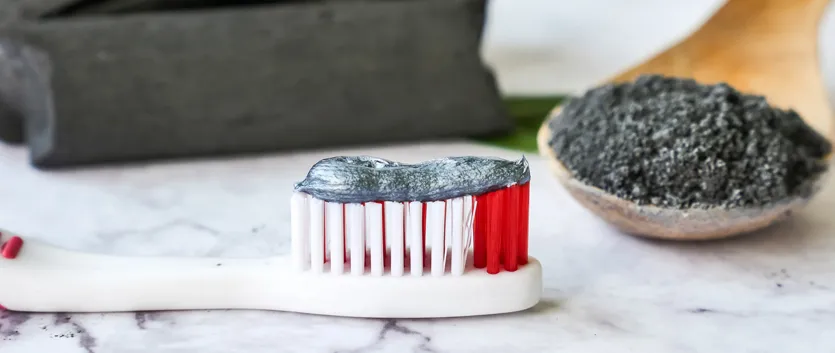
Activated charcoal’s effectiveness lies in its unique properties. During the activation process, the charcoal undergoes high-temperature treatment and is exposed to oxidizing agents, creating a highly porous surface. This porous structure acts like a magnet, attracting and trapping stain particles, toxins, and impurities. When used on teeth, the charcoal binds to these substances, effectively lifting them off the enamel surface. The gentle abrasive action of the charcoal further aids in removing these particles without damaging the enamel. This is a key aspect of why charcoal teeth whitening is seen as a less aggressive method, making it a favored choice for those looking for a natural whitening solution.
Effectiveness on Different Stains
The effectiveness of charcoal teeth whitening can vary depending on the type and severity of the stains. It works particularly well on surface stains from coffee, tea, and wine, as these are easily bound to the charcoal’s porous structure. However, it may be less effective on deeper stains, such as those caused by tetracycline or fluoride. For these deeper-seated discoloration issues, professional dental treatments may be necessary. Regular use of charcoal can help maintain a brighter smile by preventing the build-up of new surface stains, providing a proactive approach to oral hygiene and contributing to a consistently fresh and confident feeling in daily interactions and social settings.
Benefit 2: Enhanced Oral Health
Beyond its whitening capabilities, charcoal teeth whitening contributes to overall oral health. Activated charcoal has the potential to improve the health of your mouth by helping to reduce bacteria and freshen breath. Many users report a noticeable difference in the cleanliness and feel of their teeth after incorporating charcoal into their oral hygiene routines. By reducing the overall bacterial load in the mouth, you are also lowering the chances of cavities and gum disease. Regularly brushing with charcoal, when combined with other good oral hygiene practices, such as flossing and regular dental check-ups, can result in a healthier and brighter smile overall, improving one’s confidence.
Charcoal’s Antibacterial Properties
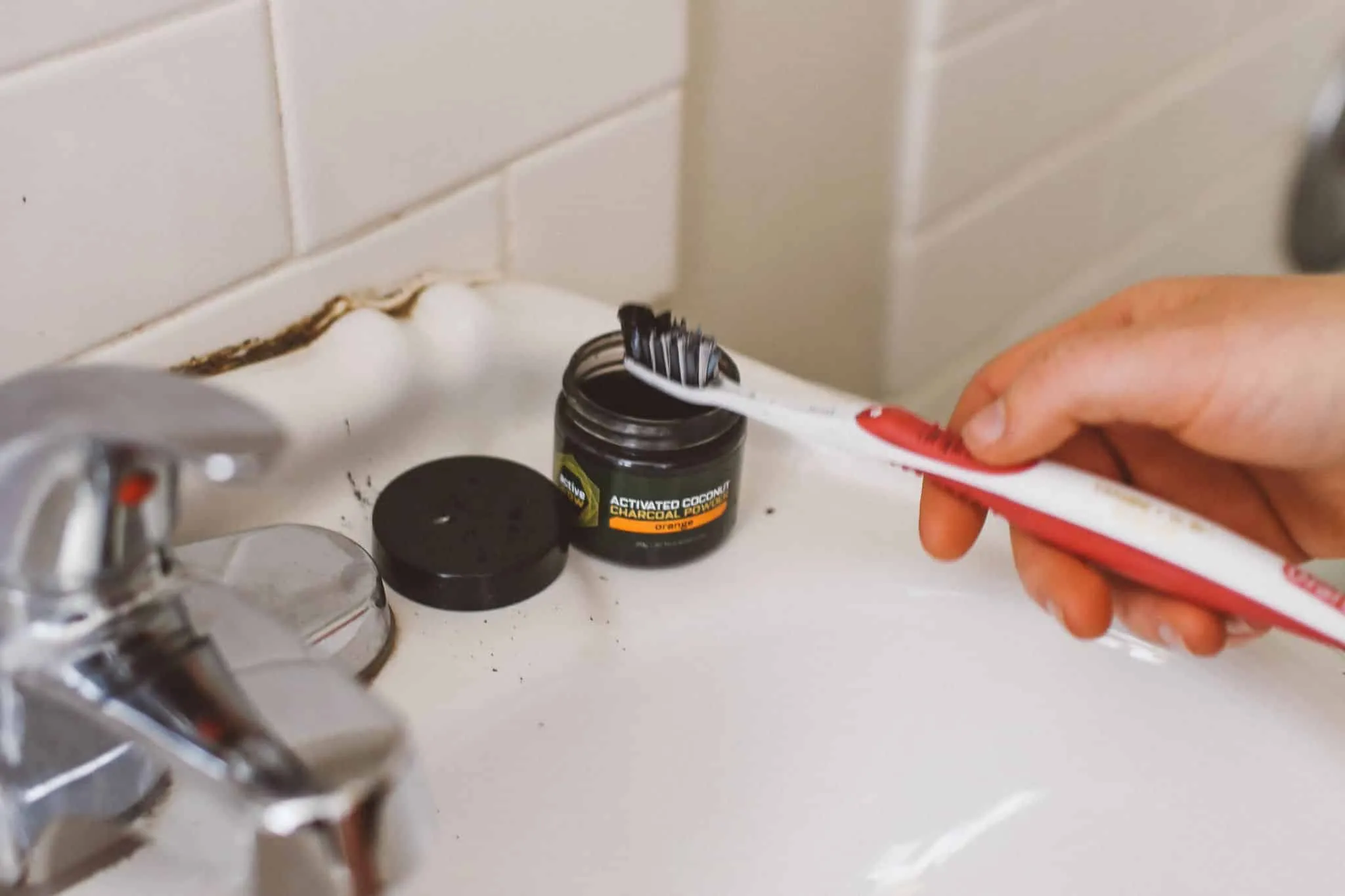
Activated charcoal exhibits antibacterial properties, which can help in the fight against harmful bacteria in the mouth. These bacteria are often responsible for bad breath, plaque buildup, and tooth decay. By reducing the bacterial load, charcoal supports a healthier oral environment. This, in turn, contributes to a fresher breath and can help prevent the onset of common oral health problems. The antibacterial action is not only beneficial in the short term, but it also provides long-term advantages by promoting a balance in the oral microbiome and encouraging a healthier and cleaner mouth environment, which is an essential part of comprehensive dental health.
Impact on Plaque and Bacteria
Charcoal helps in the removal of plaque and bacteria, both of which are primary contributors to gum disease and cavities. Its slightly abrasive nature helps to dislodge plaque from the teeth surfaces and along the gum line. This can lead to a reduction in the inflammatory response often associated with gingivitis. Furthermore, the charcoal’s ability to absorb toxins also aids in the reduction of harmful bacteria that contribute to these oral health issues. Using charcoal in conjunction with regular brushing and flossing can enhance the overall effectiveness of your oral hygiene routine, contributing to a healthier, cleaner mouth and a decreased risk of dental problems over time.
Benefit 3: Affordable Whitening Solution
Compared to many other teeth whitening methods, charcoal teeth whitening presents an affordable option. The cost of activated charcoal products, such as powders and toothpastes, is generally significantly lower than professional whitening treatments or even over-the-counter whitening strips and gels. This affordability makes it an accessible choice for those seeking to improve their smile without a hefty financial investment. The price point makes it easier for individuals to incorporate teeth whitening into their regular oral care routines, improving overall oral health. This affordability, when combined with the other advantages, makes charcoal a compelling option for those seeking both cost-effectiveness and effective results.
Cost Comparison with Other Methods
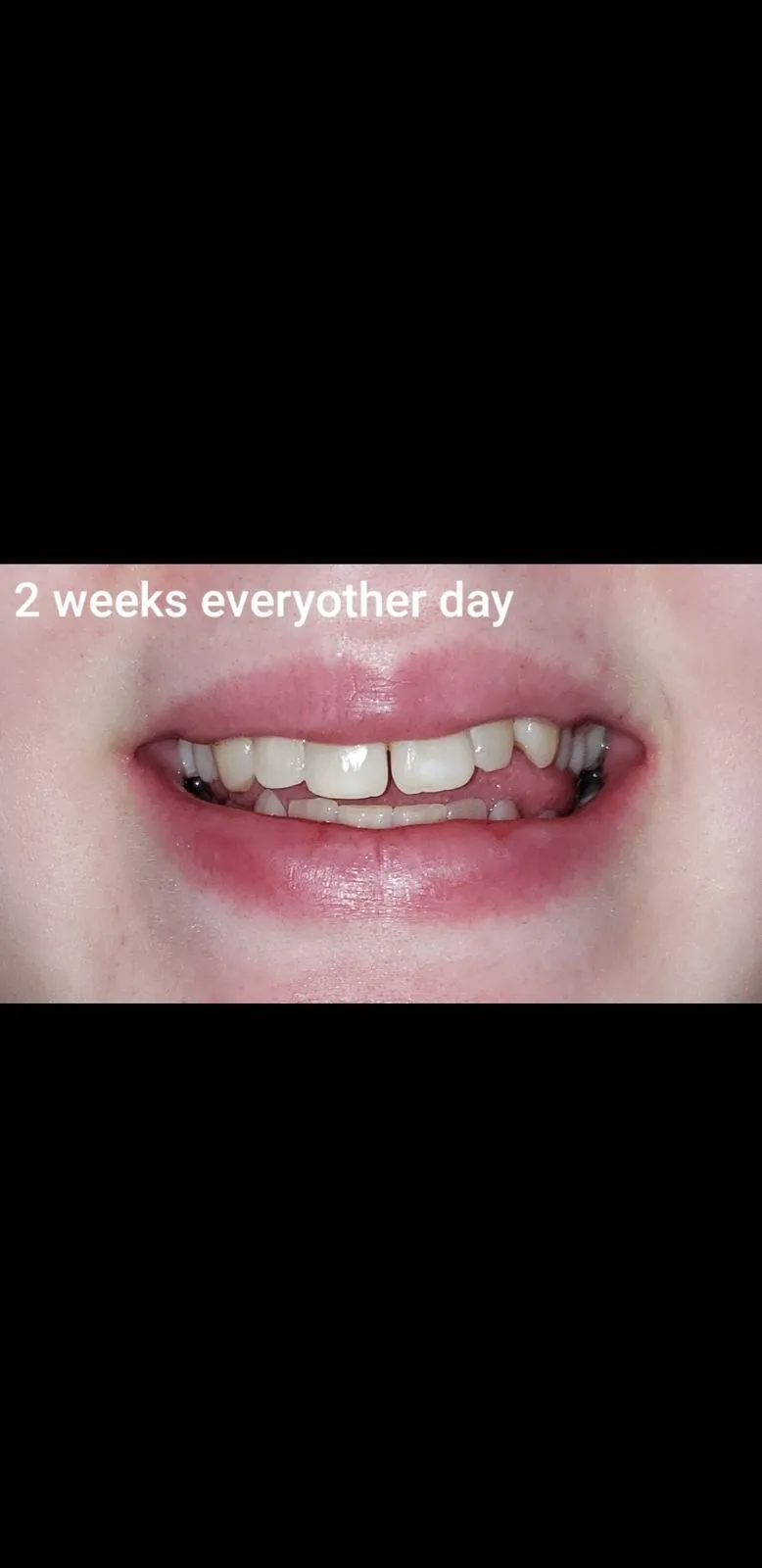
When comparing the cost of charcoal teeth whitening to other methods, the differences are striking. Professional whitening treatments at a dentist’s office can range from several hundred to over a thousand dollars, depending on the type of treatment and location. Over-the-counter whitening strips and gels, while less expensive, still require a significant upfront investment and the cost of continuous use. In contrast, activated charcoal products are typically available for under $20, and a single container can last for several weeks or even months, making charcoal an economical choice for long-term oral care. The reduced cost lets users commit to a consistent whitening routine.
Long-Term Savings
The long-term savings associated with charcoal teeth whitening are substantial. Because it is more affordable, individuals are more likely to incorporate it regularly into their oral care routine. This consistency not only contributes to sustained whitening but also promotes overall oral health. By reducing the need for more expensive professional treatments, charcoal can lead to significant savings over time. This makes it a practical and cost-effective solution for maintaining a bright, healthy smile without the constant financial burden associated with other teeth-whitening options. These long-term savings, coupled with its other benefits, make it a smart choice.
Benefit 4: Fresh Breath and Detoxification
Charcoal teeth whitening can also contribute to fresh breath and the detoxification of the mouth. Its absorptive properties help to eliminate odor-causing compounds and toxins. As it binds to these substances, it effectively removes them from the oral cavity, leaving behind a cleaner, fresher sensation. This not only enhances the overall experience of brushing but also supports a healthier oral environment, potentially reducing the risk of halitosis and other related issues. In addition, this detoxification effect supports a general sense of well-being and confidence in social situations. It’s a holistic approach to oral hygiene that extends beyond mere whitening.
Charcoal’s Odor-Absorbing Capabilities
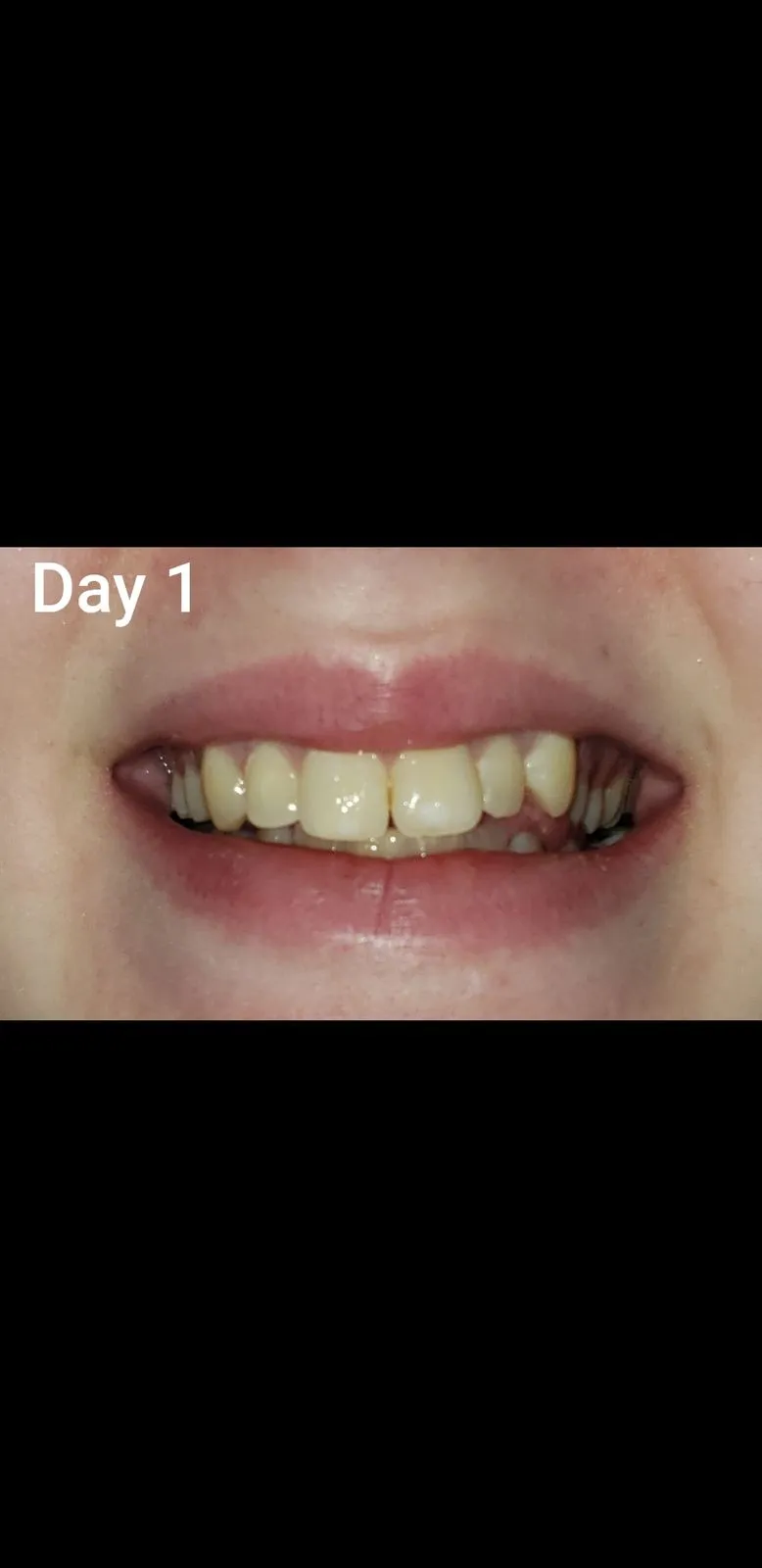
Activated charcoal’s remarkable ability to absorb odors is one of its key benefits for promoting fresh breath. The porous structure of the charcoal traps volatile organic compounds (VOCs) that are often responsible for bad breath. By removing these compounds, charcoal helps to neutralize unpleasant odors, leaving the mouth feeling cleaner and fresher. This deodorizing action is particularly beneficial after consuming foods with strong smells, such as garlic or onions, or in the morning. The result is an enhanced sense of cleanliness and a boost in confidence, as the user is assured of a fresher breath, which makes it a highly sought-after feature.
Detoxification of the Mouth
Charcoal aids in the detoxification of the mouth by adsorbing toxins and impurities. The porous structure of the charcoal acts like a magnet, attracting and binding with toxins and other harmful substances. This helps to remove these unwanted elements from the oral cavity. By removing these substances, charcoal promotes a cleaner and healthier oral environment, contributing to better overall oral hygiene. Regular use can assist in reducing the build-up of harmful materials, which contributes to a fresher, cleaner mouth and can lead to a greater feeling of wellness. This detoxification ability is a significant advantage of charcoal teeth whitening.
Benefit 5: Gentle on Enamel
Compared to many harsh whitening agents, charcoal teeth whitening is often considered a gentle option for the enamel. The process involves a minimal risk of enamel erosion. It offers a natural alternative that is less likely to cause sensitivity or damage. This is one of the main reasons for its popularity, as users can improve their smile’s appearance without the concern of causing dental damage. Charcoal’s gentle nature makes it a safe choice for people with sensitive teeth. This quality enhances its appeal as a daily use product that is effective and kind to the user’s overall dental health, providing a great experience.
Compared to Harsh Whitening Agents
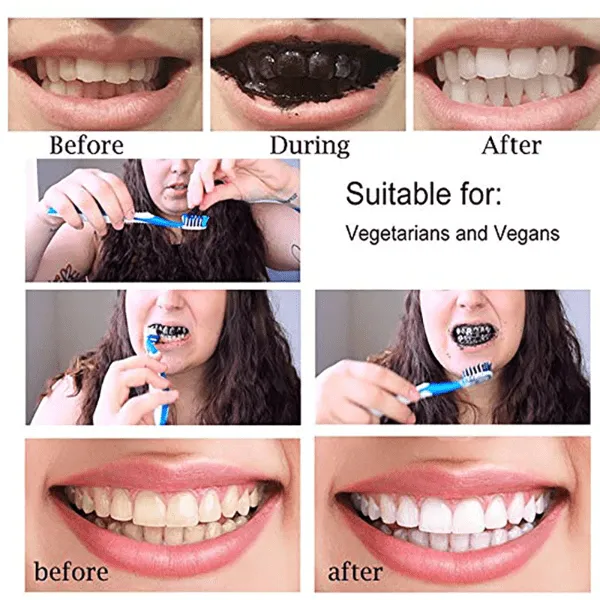
Traditional teeth whitening treatments often use strong bleaching agents such as hydrogen peroxide, which can potentially weaken or damage the enamel over time. Charcoal, on the other hand, provides a natural alternative, with a gentler abrasive action that primarily removes surface stains without altering the enamel’s structure. Because charcoal doesn’t contain harsh chemicals, it is less likely to cause sensitivity or irritation, making it a suitable option for people seeking less invasive ways to brighten their smile. This is a major advantage and is what separates it from traditional alternatives. It’s a balance of effectiveness and safety.
Suitable for Sensitive Teeth
People with sensitive teeth often find it difficult to use conventional whitening products. Charcoal teeth whitening offers an alternative as it does not typically cause the same level of sensitivity. The absence of harsh chemicals makes it a suitable option for individuals prone to discomfort from bleaching agents. The gentle abrasive action helps to remove stains without irritating the gums or enamel. This is a significant advantage, allowing those with sensitive teeth to enjoy a brighter smile without the side effects. Its gentleness makes charcoal a great option for a wider audience seeking a simple and effective way to whiten teeth.
Potential Drawbacks and Considerations
While charcoal teeth whitening presents many benefits, there are potential drawbacks and considerations to be aware of. It’s essential to approach this method with a balanced perspective, understanding both its advantages and limitations. Overuse and misuse can lead to adverse effects, so it’s crucial to follow the recommended guidelines and consult with a dental professional. Proper use helps users maximize the benefits while minimizing risks.
Abrasiveness Concerns
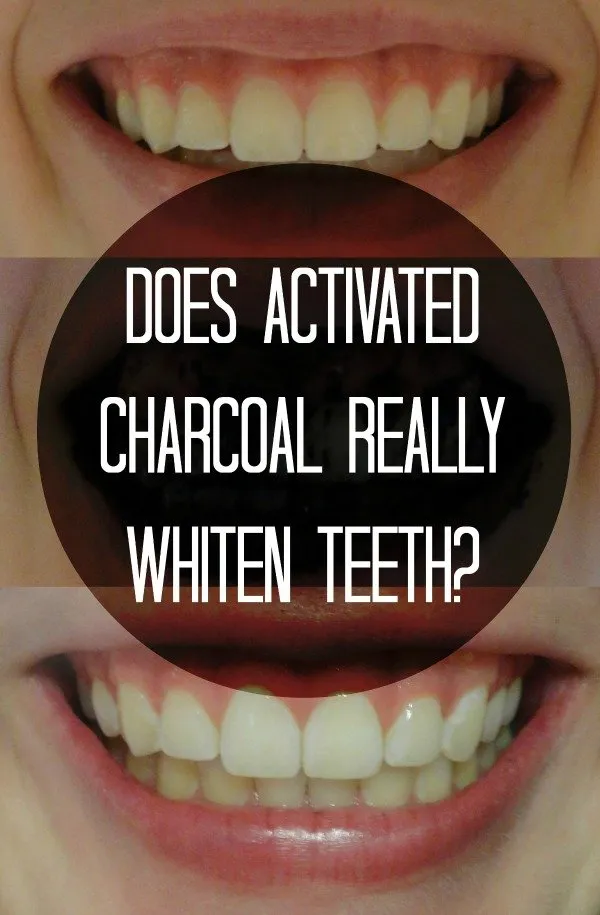
One of the primary concerns with charcoal teeth whitening is its abrasiveness. While the abrasive action of charcoal is helpful for removing stains, excessive or aggressive brushing can potentially damage the enamel. Over time, this can lead to enamel erosion, making the teeth more susceptible to decay, sensitivity, and discoloration. It’s essential to use charcoal gently and avoid excessive force while brushing. Using a soft-bristled toothbrush and brushing correctly will minimize the risks and protect the enamel. Proper technique and moderate use ensure that the benefits are maximized and potential harm minimized.
Effect of Long-Term Use
The long-term effects of charcoal teeth whitening are still being researched. The potential for enamel erosion increases with prolonged and frequent use. While the gentle abrasive quality of charcoal may not cause immediate damage, continuous abrasion can gradually wear down the enamel. As enamel erodes, teeth may become more prone to cavities, sensitivity to hot and cold temperatures, and further discoloration. Therefore, it’s important to monitor the condition of your teeth and to consult your dentist regularly if you choose to use charcoal teeth whitening over an extended period. Proper care and dental check-ups ensure the long-term safety and effectiveness of the treatment.
Proper Usage Guidelines
To maximize the benefits and minimize the risks of charcoal teeth whitening, it’s essential to follow the proper usage guidelines. Use a soft-bristled toothbrush and apply gentle pressure. Brush for a maximum of two minutes and do not scrub vigorously. Rinse your mouth thoroughly with water after brushing to remove any charcoal residue. It’s recommended to use charcoal a few times a week, not daily, to limit any potential harm to the enamel. Consider alternating it with regular toothpaste to maintain a balance in your oral care routine. Following these guidelines will help you achieve a brighter smile safely and effectively, leading to more confident smiles.
Consulting with a Dentist
Consulting with your dentist before starting charcoal teeth whitening is highly recommended. Your dentist can assess the current condition of your teeth and determine if charcoal is a suitable option for you. They can advise on the best practices for using charcoal and help monitor any potential effects on your enamel. Regular dental check-ups are essential, to ensure the long-term health of your teeth. A dentist can provide professional advice and guidance, addressing any concerns and making sure that you’re using charcoal safely and effectively, avoiding any dental health risks. Working with a dental professional ensures safety and effectiveness, enhancing the results.
In conclusion, charcoal teeth whitening offers several appealing benefits, including natural stain removal, enhanced oral health, affordability, fresh breath, and a gentle approach for enamel. While the advantages are clear, it’s important to acknowledge the potential drawbacks, particularly the abrasiveness and the importance of proper usage. By understanding both the positives and negatives, you can make an informed decision about whether charcoal teeth whitening is right for you. Regular consultations with a dentist are essential for maintaining a healthy and bright smile, allowing you to confidently embrace the advantages of charcoal teeth whitening while minimizing the risks.
